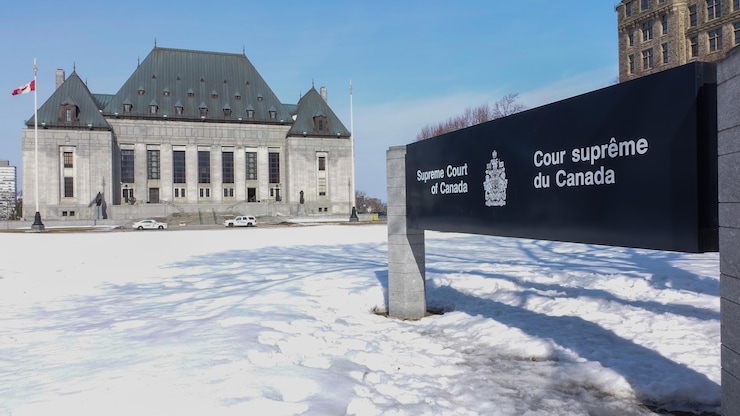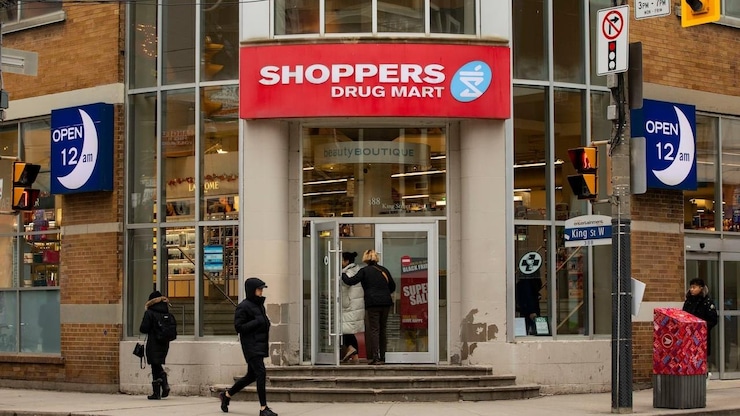Canada News
B.C. can sue opioid providers for health-care costs on behalf of other governments, Canada’s top court rules
By Yasmine Ghania, CBC News, RCI

Section 11 of the act allows B.C. to file a class-action lawsuit against opioid providers on behalf of the federal government or any province or territory that paid to treat patients who took the drugs. (File photo: Michael Longmire/Unsplash)
Supreme Court of Canada dismisses appeal by pharmaceutical manufacturers, distributors and retailers
Canada’s top court has ruled that British Columbia can bring forward a class-action lawsuit against pharmaceutical providers for harms caused by opioids on behalf of other provinces, territories and the federal government.
The decision brings an end to a years-long fight with Shoppers Drug Mart and other manufacturers, distributors and retailers who make or handle opioid drugs, and paves the way for potential nationwide action by governments.
The companies wanted the Supreme Court of Canada to examine two lower-court decisions that confirmed B.C.’s right to take legal action using the provincial Opioid Damages and Health Care Costs Recovery Act (ORA).
Section 11 of the act allows B.C. to file a class-action lawsuit against opioid providers on behalf of the federal government or any province or territory that paid to treat patients who took the drugs.
The companies argued the section was unconstitutional and did not respect territorial limits. Both the B.C. Supreme Court and the B.C. Court of Appeal sided with the province, ruling the section was purely a procedural mechanism.
In a 6-1 decision, the Supreme Court of Canada has now dismissed the companies’ final appeal.
Crisis crossing borders
A majority of justices found Section 11 is constitutional and deals with procedural rights that fall within the province’s authority over the administration of justice.
When products, people and problems cross jurisdictional boundaries, co=operation and comity are vital to ensure that justice is not blocked by provincial borders,
wrote Justice Andromache Karakatsanis in the decision released Friday morning.
“The opioid epidemic spanning our country is a stark example of a crisis which attracts this co-operation and comity.
National in scope, it highlights the role a national class action can play in achieving efficiency, consistency, and access to justice for all those who have experienced harm, regardless of geographic boundaries.

Justice Andromache Karakatsanis says cross-country co-operation is effective when a crisis crosses borders, referring to the toxic-drug crisis that has been driven by opioids. Photo: Radio-Canada / Virginie Gagnon-Leduc
The allegation
The opioid legislation is modelled on similar B.C. legislation that forced cigarette companies to pay a portion of tobacco-related health care costs. In 2005, the Supreme Court of Canada ruled that law was constitutionally valid.
In 2018, B.C. brought forward legal action against 49 pharmaceutical companies, including Sanis Health Inc. and Shoppers Drug Mart Inc. — both owned by Loblaw — as well as Sandoz Canada Inc. and McKesson Canada Corporation.

B.C. is alleging pharmaceutical companies, including Shoppers Drug Mart Inc., contributed to the opioid epidemic by falsely marketing their products as being less addictive and less prone to abuse than other pain medications. Photo: Michael Wilson/CBC
B.C. alleged every province and territory in Canada has experienced high rates of addiction, illness and death due to the opioid epidemic, and that the defendants contributed to the epidemic by falsely marketing their products as being less addictive and less prone to abuse than other pain medications.
None of the allegations have been proven in court.
Sanis Health, Shoppers, Sandoz Canada and McKesson Canada brought forward the constitutional challenge. They did not immediately respond to requests for comment from CBC News.
Provinces or territories are allowed to opt out of B.C.’s class-action if they wish, according to the province’s legislation, but none have so far, said B.C.’s Ministry of the Attorney General on Thursday.
Justice Suzanne Côté dissented in the case, raising concerns about the legislative sovereignty of other provinces.
She said while co-operation between provincial and federal governments is a laudable goal,
the method must be consistent with the structure of Canadian federalism, no matter how advantageous it may be to encroach on the jurisdiction of other governments in any given case.
CBC News has contacted B.C. Attorney General Niki Sharma and federal Health Minister Mark Holland for comment.
This article is republished from RCI.





















